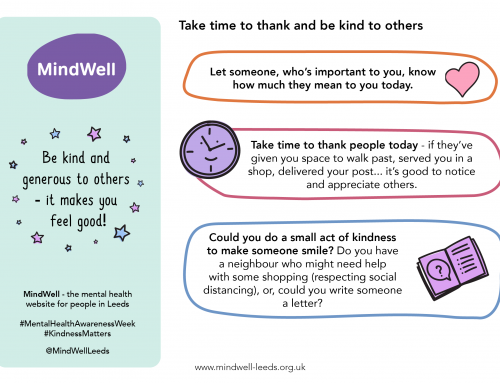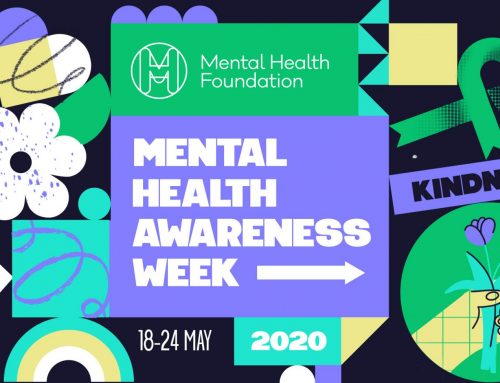It’s National Stress Awareness Day today so we asked Carers Good Health Worker Jo to write a blog about carers and stress. Take a look…
“Writing a short blog about stress is stressful in itself! It’s a huge and fascinating topic. Research from Carers UK published recently told us only 7% of carers get sufficient breaks. No wonder they are stressed!
Stress is a physical response to an external pressure. Think of prehistoric man running from that hungry tiger. When faced with a threat, our brain and body prepare us to fight or flee. We go on high alert. Heart rate increases. Adrenalin pumps. Blood gets diverted from where it’s not needed to where it is. It leaves your bowels, causing those feeling of sickness and needing the loo, and rushes to your muscles and limbs.
This process is actually very useful. There are claims stress makes us more productive. Once the threat has passed, our bodies and minds return to normal. But if we always have a big stress response to small life events such as being put on hold on the phone, we are heading for trouble. This is because our minds and bodies are left in a constant state of high alert and the feelings of stress aren’t able to fade and can accumulate.
When we consider that life’s nice events like weddings and moving home can cause stress, it’s no wonder we feel it when dealing with redundancy, divorce, illness and bereavement.
 Some of the signs of stress can include:
Some of the signs of stress can include:
- Feeling overwhelmed
- Irritable
- Anxious or fearful
- Racing thoughts
- Constant worrying
- Difficulty concentrating and making decisions
- Headaches
- Muscle tension or pain
- Sleep problems
- Feeling tired all the time
- Eating too much or too little
- Drinking or smoking more
- Avoiding things or people you are having problems with
I’m sure we are all reading this and thinking “yep, that’s me”! So what can you do about it? Here are ten top tips:
- Share your problems verbally with friends/the dog/Carers Leeds or try writing them down
- Take short breaks when you can. Have a bath, stand on the doorstep for five minutes, watch or listen to the news
- Try to face your problems and take control and practical action, rather than avoiding things or thinking that you can’t do anything about it. If you can’t do anything about it, see tip 9!
- Try to relax with breathing exercises or muscle relaxation techniques. Excellent tips here from Mind
- Prioritise your tasks. What is vital? What can wait? What can you delegate? Anything else can be crossed off as it is potentially unimportant or too idealistic
- Try to exercise and eat well
- Spend time in good company. Avoid people who don’t add anything to your life. Join the Carers Leeds Walking group or a support group
- Accept the things that you cannot change and refocus your energy elsewhere
- Try apps such as Headspace, Stress & Anxiety Companion and Calm
- If you are really worried, speak to your GP
Jo Foster, Carers Good Health Worker








Leave A Comment